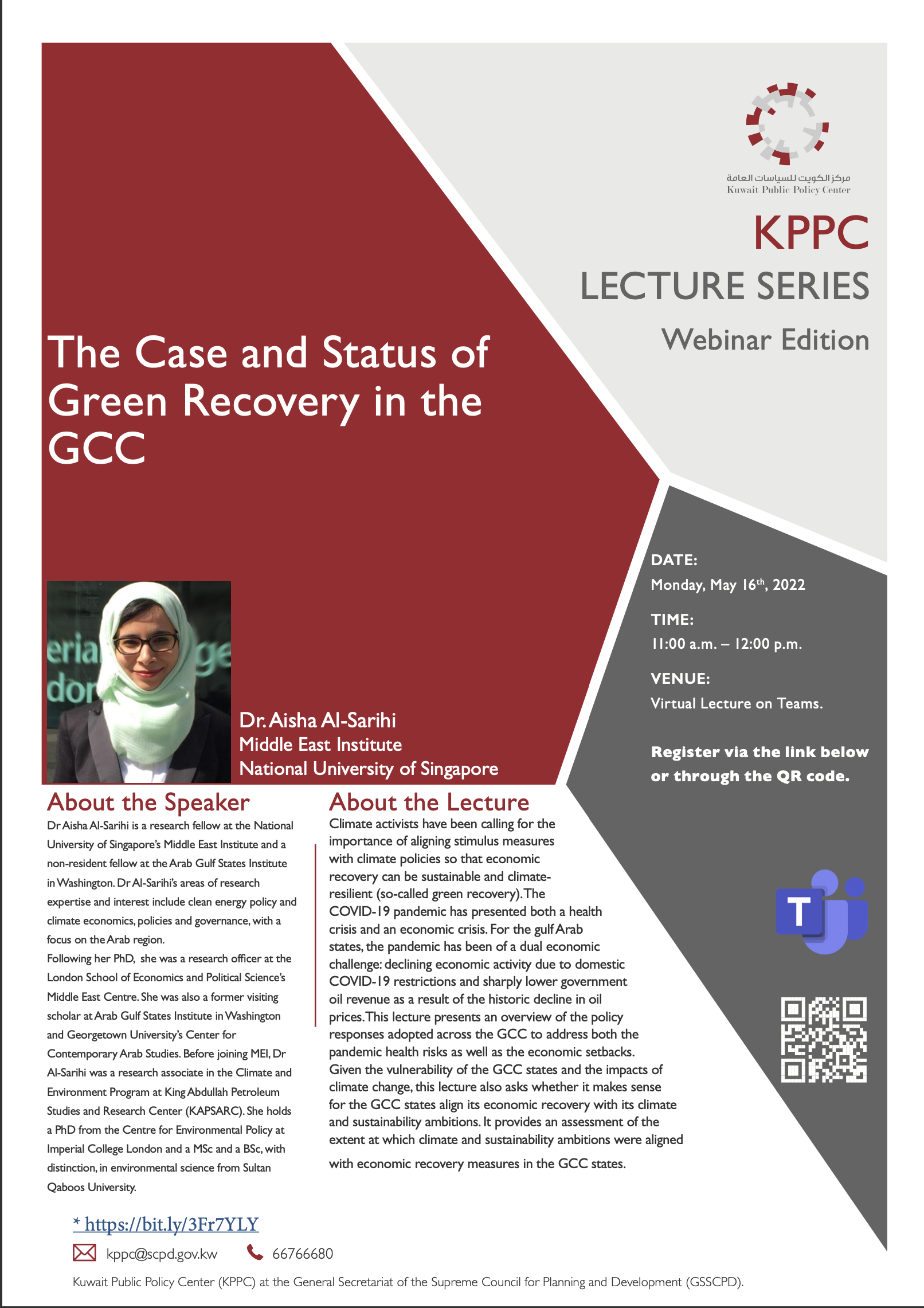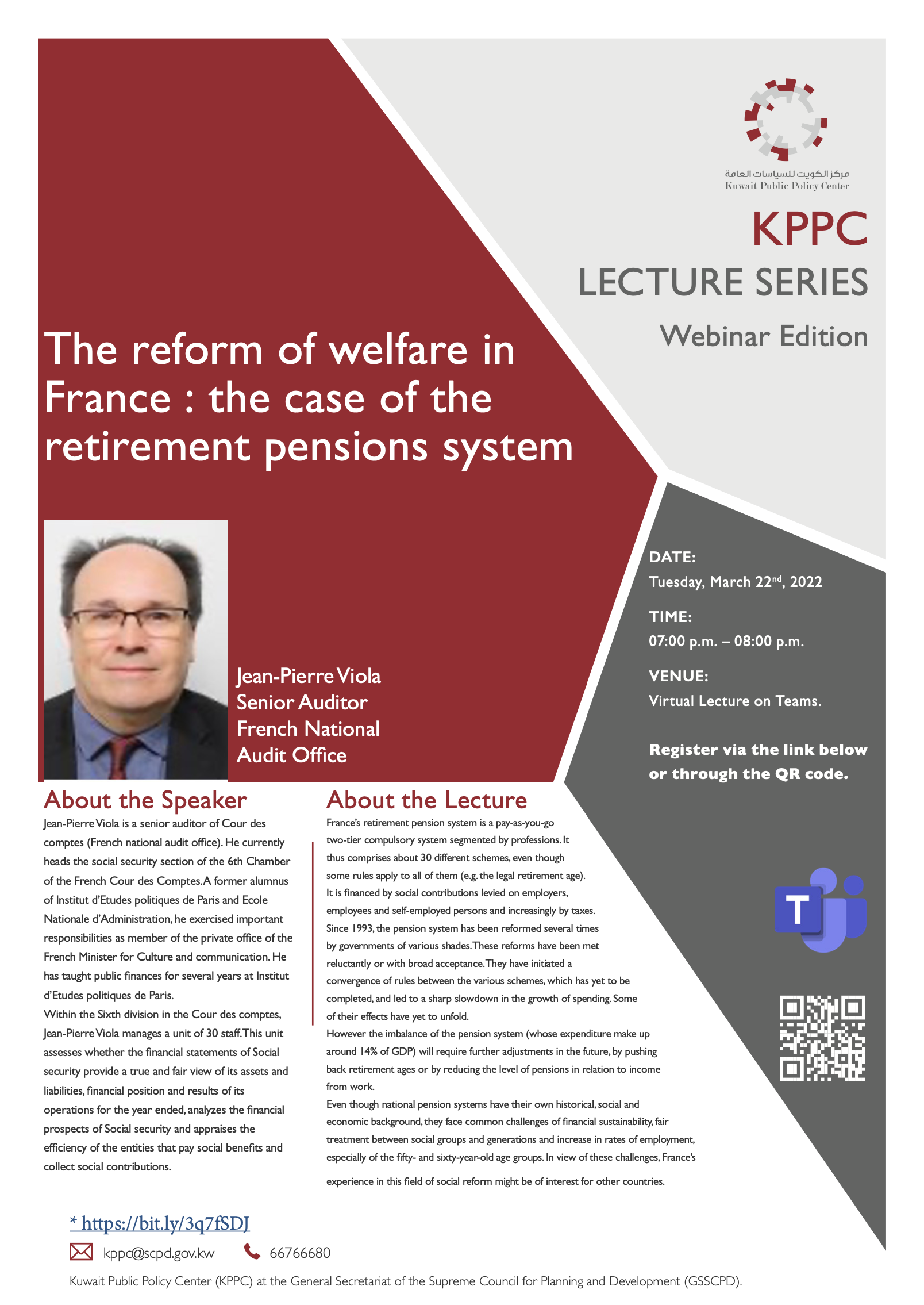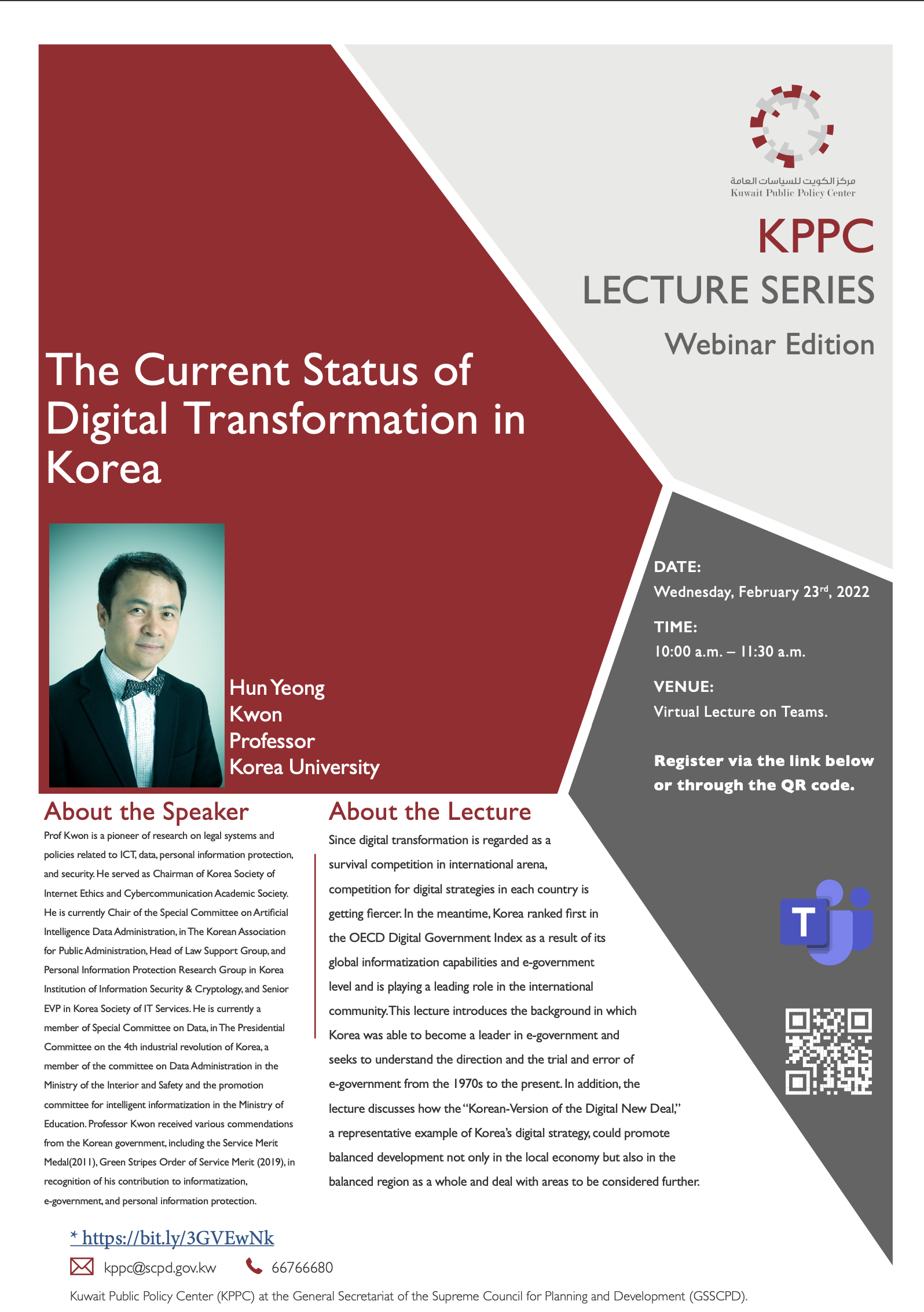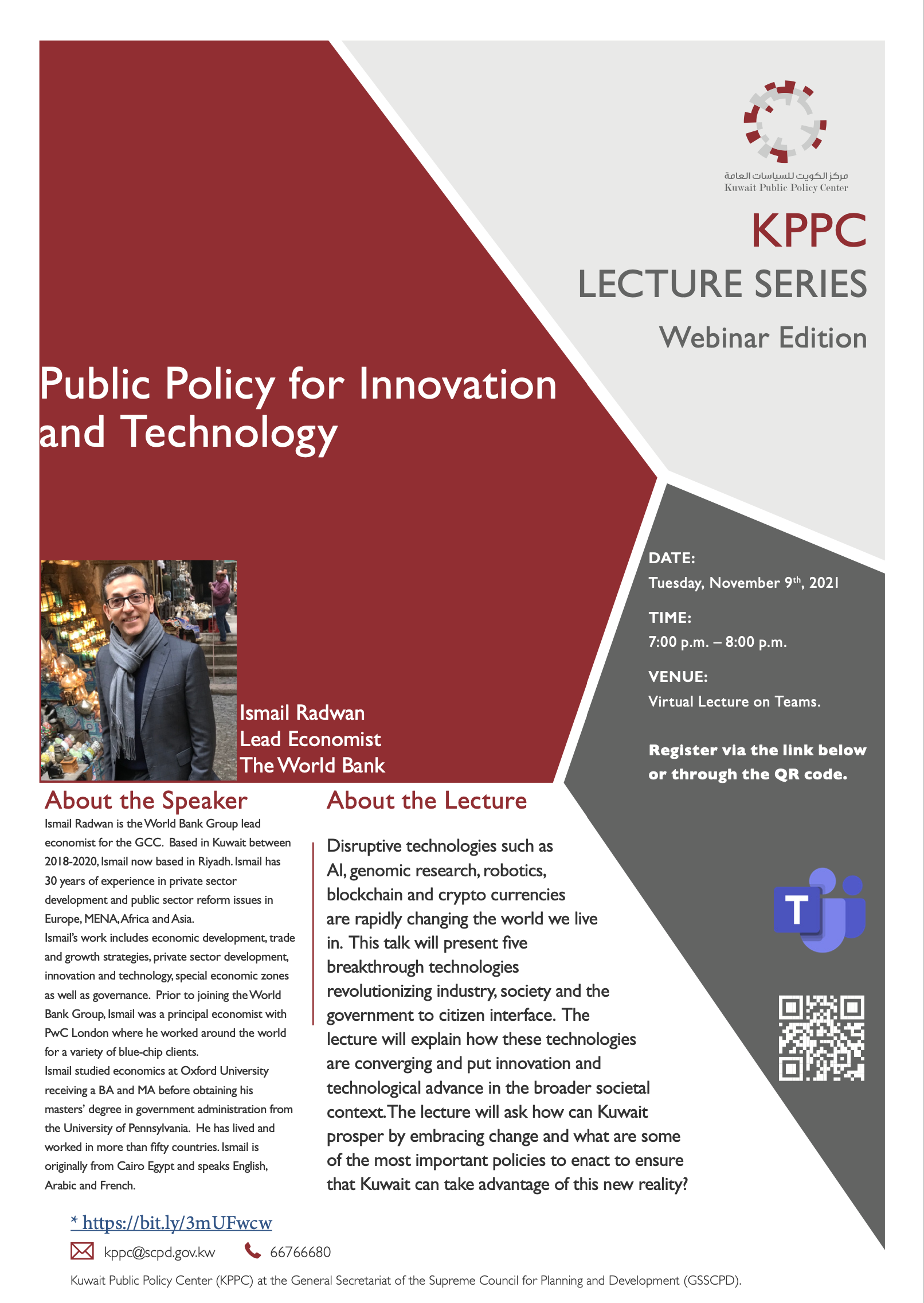KPPC Lecture Series
With the aim to build national capacities in the area of public policies, the KPPC holds a monthly talk series that provides a platform for policy dialogue and relevant policy debate. The talk series brings onboard renowned speakers, practitioners, and academic researchers with public policy expertise from around the world. In engaging with the public, experts and national stakeholders. The KPPC Lecture Series serves as a platform where different ideas from around the world are shared and policies are challenged to inform future policies. The first step to drafting an effective public policy is to have the knowledge and expertise needed to produce it. The KPPC lecture series serves to share expertise and knowledge in order to effectively take that first step.
Building social policies to enhance economic growth (international experiences)
The lecture demonstrates the importance of defining comprehensive social policy through integrated investment aimed at empowering, securing and including all members of society so that everyone possesses productive skills and capabilities and contributes to increasing social profits and improving economic productivity and experiences social advancement, each according to their ability, and also guarantees to a large extent the sustainability of advancement for future generations.

The Case and Status of Green Recovery in the GCC
Climate activists have been calling for the importance of aligning stimulus measures with climate policies so that economic recovery can be sustainable and climate-resilient (so-called green recovery). The COVID-19 pandemic has presented both a health crisis and an economic crisis. For the gulf Arab states, the pandemic has been of a dual economic challenge: declining economic activity due to domestic COVID-19 restrictions and sharply lower government oil revenue as a result of the historic decline in oil prices. This lecture presents an overview of the policy responses adopted across the GCC to address both the pandemic health risks as well as the economic setbacks. Given the vulnerability of the GCC states and the impacts of climate change, this lecture also asks whether it makes sense for the GCC states align its economic recovery with its climate and sustainability ambitions. It provides an assessment of the extent at which climate and sustainability ambitions were aligned with economic recovery measures in the GCC states.

The reform of welfare in France : the case of the retirement pensions system
France’s retirement pension system is a pay-as-you-go two-tier compulsory system segmented by professions. It thus comprises about 30 different schemes, even though some rules apply to all of them (e.g. the legal retirement age). It is financed by social contributions levied on employers, employees and self-employed persons and increasingly by taxes. Since 1993, the pension system has been reformed several times by governments of various shades. These reforms have been met reluctantly or with broad acceptance. They have initiated a convergence of rules between the various schemes, which has yet to be completed, and led to a sharp slowdown in the growth of spending. Some of their effects have yet to unfold. However the imbalance of the pension system (whose expenditure make up around 14% of GDP) will require further adjustments in the future, by pushing back retirement ages or by reducing the level of pensions in relation to income from work. Even though national pension systems have their own historical, social and economic background, they face common challenges of financial sustainability, fair treatment between social groups and generations and increase in rates of employment, especially of the fifty- and sixty-year-old age groups. In view of these challenges, France’s
experience in this field of social reform might be of interest for other countries.

The Current Status of Digital Transformation in Korea
Since digital transformation is regarded as a survival competition in international arena, competition for digital strategies in each country is getting fiercer. In the meantime, Korea ranked first in the OECD Digital Government Index as a result of its global informatization capabilities and government level and is playing a leading role in the international community. This lecture introduces the background in which Korea was able to become a leader in e-government and seeks to understand the direction and the trial and error of e government from the 1970s to the present. In addition, the lecture discusses how the “Korean-Version of the Digital New Deal,” a representative example of Korea’s digital strategy, could promote balanced development not only in the local economy but also in the balanced region as a whole and deal with areas to be considered further.

Public Policy for Innovation and Technology
Disruptive technologies such as AI, genomic research, robotics, blockchain and crypto currencies are rapidly changing the world we live in. This talk will present five breakthrough technologies revolutionizing industry, society and the government to citizen interface. The lecture will explain how these technologies are converging and put innovation and technological advance in the broader societal context. The lecture will ask how can Kuwait prosper by embracing change and what are some of the most important policies to enact to ensure that Kuwait can take advantage of this new reality?